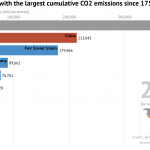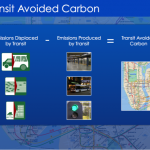
Far from being an artifact of the Age of Discovery, colonialism underpins our global economic system, one predicated on overconsumption and disregard for planetary boundaries. This colonial legacy allowed the U.S. and other developed nations to accumulate wealth, influence, and a massive debt of carbon emissions. Yet these wealthy and powerful countries now have a chance to address the damage done by acknowledging colonialism’s legacy and acting on climate change.

The urgency of curbing greenhouse gas emissions to limit climate change is enjoying unprecedented global attention. But there’s one source of carbon emissions that has been flying under the radar: the world’s militaries.

Geoengineering is a term that climate aficionados and anyone with an opinion on environmental issues tends to perceive with apprehension and mistrust due to the ambiguous, potentially dangerous side effects of manipulating natural processes of the environment.

With the European Union’s ratification of the Paris Agreement on October 5, the document reflecting worldwide effort on climate change will be legally binding next month.

C+Sers come from a range of academic backgrounds, but Tim Bushman has a particularly unique one. He studied kinesiology and clinical exercise physiology at the University of Wisconsin.

The Paris Agreement, signed in December 2015, was widely perceived as a milestone in the fight against global warming. Nearly 160 countries agreed to limit the increase in temperature to 2°C above pre-industrial levels and to pursue efforts to stay within 1.5°C. This agreement was without a doubt a big step forward. However, how do we get there?

Every single trip via MTA can save around 10.4 lbs of greenhouse gases. You might think it is not a big number, but actually, it equals to the carbon emissions required to make about 30 disposable coffee cups. And if I take MTA for 2 unique trips per day, I would save 7,592lbs GHG emission savings annually. That’s a lot of coffee cups.

During my internship in Wanhua Chemical (America) — a large petrochemical producer with operations across the world — , I have participated in a project focused on chlorobenzene importation.. Chlorobenzene can also be used for the original materials for production. It is also a powerful solvent that can be used for the cleaning.

I live in a city. In a typical day, I wake up in the morning and I take a shower, I eat some toast, I drink some coffee, I grab my phone and head out. A normal city life, I guess. What could possibly be uncommon about it?

Even those who are not interested in climate change and in the well-being of the environment usually know that using inefficient light bulbs rather than efficient ones, eating meat rather than vegetables and traveling by car rather than by public transportation result in higher greenhouse gas (GHG) emissions. What they probably do not know is that if you live in a Western country, many of the simple daily actions you do are a major source of emissions. What if I told you that the Western lifestyle is highly unsustainable?













